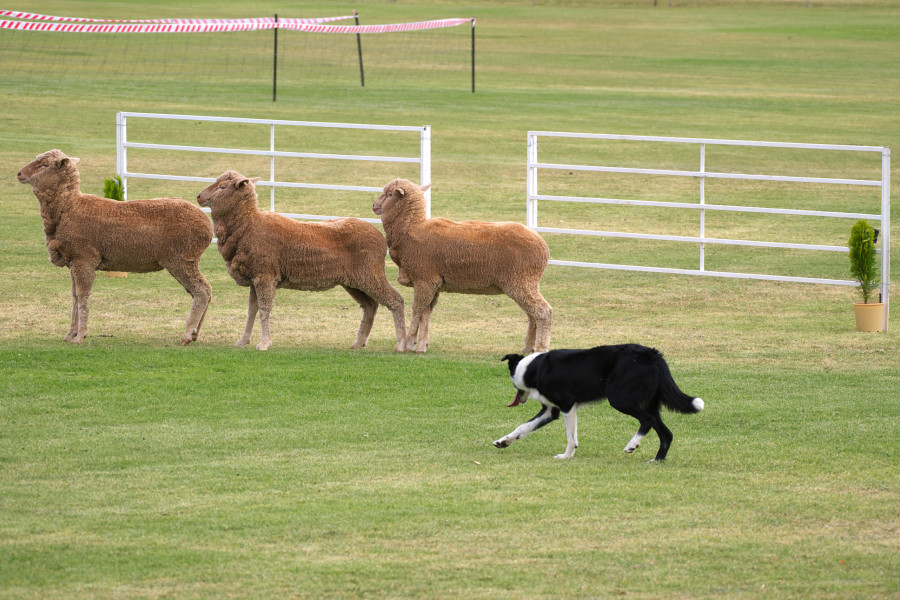Tips on Handling a High Energy Dog

Most dog breeds were created for a purpose. Some purely for companionship, but many had a job to do. Herding, guarding, tending, hunting, pulling – these are just some of the jobs we have created dog breeds for. All of these jobs require a lot of energy on the dog’s part. A low-energy dog would not have lasted out in the field moving cattle or running through the woods to overtake a deer. However, nowadays most dogs have the sole job as pet and companion. So how do you handle the high energy dog? A lot of dogs end up in shelters because owners can’t find the answer to this question. Here are some simple tips on handing a high energy dog so you can live happily ever after.
Give Them a Job
If your dog was bred for a job, give him one! From herding to obedience and agility to dock diving, there are many dog sports out there that all variety of breeds can participate in. Find one that you and your dog enjoy and do it together.
You can also give your dog a job inside your home for day-to-day stuff. Teaching them to put their own toys away or help you with human things like turning off lights or opening doors – things service dogs do – can give your dog an outlet for their energy.
Stimulate Their Mind
Using their brain tires a dog out almost as much as physical exercise and it’s vitally important! Training for a job or a sport mentioned above will use both physical and mental energy. You can also do things like feed them their meals in puzzle toys or snuffle mats, which make them use their brain, or hide their meal for them to find – maybe you scatter their food in the grass outside when the weather is nice. Or hide a meaty bone for them to sniff out.
The key here is to start with simple brain teasers, so your dog can be successful. Gradually up the difficulty as your dog learns to problem solve better.
Physical Exercise
Of course, physical exercise is important for handling a high energy dog. Whether you take him on a run each day, for a game of fetch, or time at an off-leash park, it’s important to give that energy an appropriate outlet so he doesn’t chew your couch, and it keeps her fit and healthy.
It should be noted that for some dogs, however, physical energy by itself, with no mental stimulation, can make a dog more wound up. If you find your dog is just bouncing all over the place after a run, it’s time to add some thinking into that workout. Even a game of fetch where you require your dog to do a sit before you throw the ball or a lie down in the middle of his retrieve, will wear him out better than just mindless chasing for hours.
Chew Time
Chewing on a bone, toy or other type of dog chew not only cleans their teeth, but studies have shown it actually relieves mild anxiety, frustration and boredom in dogs. So high energy dogs can really benefit from some daily chew time.
Calm Time
Some high energy dogs also need help with their off switch. They need to be taught how to relax. Mat training – where you teach your dog to stay on a mat or a dog bed for extended stays – can really help a dog relax. Give them a chew bone while they are on their mat. You can also use crate training for this too. This is especially helpful for the dog that thinks he needs to guard your home 24/7. By mat or crate training, you are letting them know when they can go “off duty” and relax. This will make your house much more pleasant, not just for the dog, but for you and anyone that comes over.
Following these simple tips will help you handle your high energy dog and create a healthier and more enriching life for your best friend.

My mini foxie destroys pillows, pet beds n chews on furniture. He has lots of treats n balls to chew on.